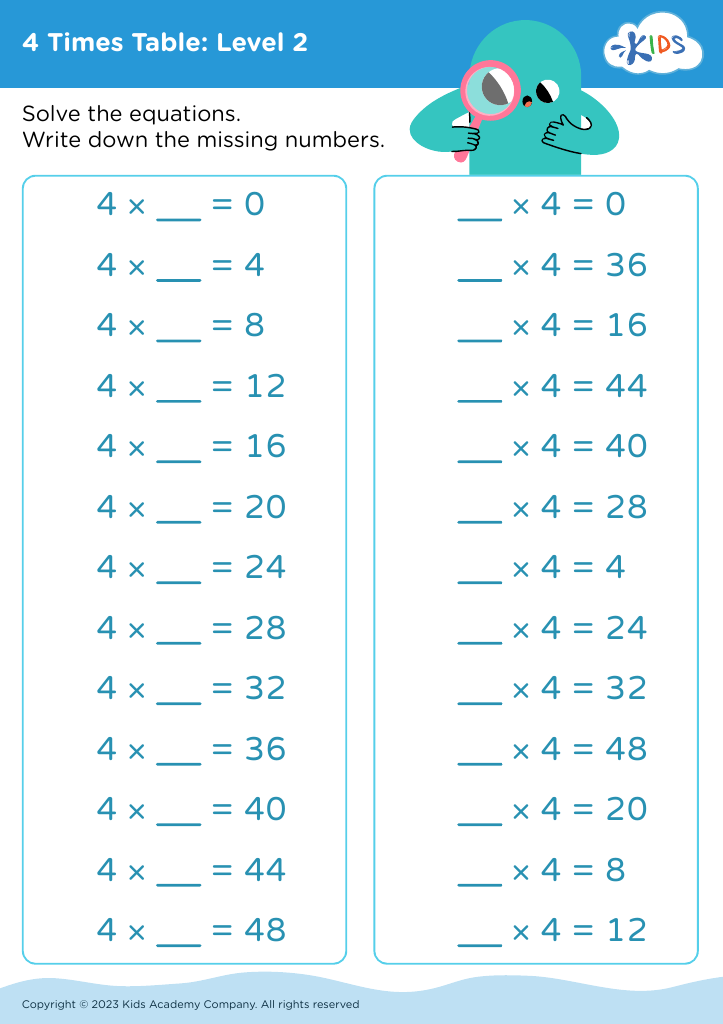Improves calculation skills Worksheets for Kids
1 filtered results
-
From - To
Question/Answer
How to test a Grade 3 student’s Improves calculation skills?
To test a Grade 3 student's improvement in calculation skills, administer a variety of math quizzes focusing on addition, subtraction, multiplication, and division, incorporating both simple and complex problems. Include word problems to assess their ability to apply calculation skills in real-life scenarios. Track their accuracy and speed over time to measure improvement.
How does the mastery of the Improves calculation skill affect a student's performance at an early age?
The mastery of the Improves calculation skill at an early age significantly boosts a student's performance by enhancing their mathematical fluency, problem-solving abilities, and confidence in handling numbers. It lays a strong foundation for advanced mathematical concepts, critical thinking, and analytical skills, positively impacting academic achievement across various subjects.
How to train the Improves calculation skill in Grade 3 students learning about Advanced Times Tables up to 12?
To train Grade 3 students in advanced times tables up to 12, start with visual aids and real-life examples to build understanding. Introduce interactive games and flashcards for daily practice. Employ skip counting to make connections between numbers. Encourage pair or group practice for peer learning, and use timed quizzes to improve speed and accuracy.





















